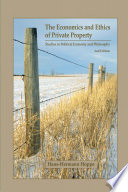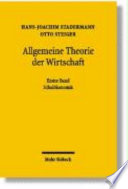 | John W. Budd - 2004 - 290 lapas
...labor (Schlatter 1951; Home 1990; Simmons i99z; Lauren 1998). In the words of Locke (1690, §Z7, 3056), "Every man has a property in his own person. This...work of his hands, we may say, are properly his." In the nineteenth and twentieth centuries, this view was rejected by neoclassical economists and utilitarians... | |
 | Nicolaus Tideman - 2006 - 358 lapas
...the virtue of productivity-based inequality occurs in John Locke's Second Treatise of Government'. The labor of his body, and the work of his hands,...Whatsoever then he removes out of the state that nature has provided, and left it in, he has mixed his labor with, and joined to it something that is his own,... | |
 | Janet Dine, A. Fagan - 2006 - 401 lapas
...man has a property in his own person. There is no body has any right to it but himself. The labour of his body, and the work of his hands we may say...Whatsoever then he removes out of the state that nature has provided, and left it in, he hath mixed his labour with and joined to it something that is his... | |
 | Hans-Hermann Hoppe - 2006 - 446 lapas
...Locke, Two Treatises of Government, ed. Peter Laslett (Cambridge: Cambridge University Press, 1960). [E]very man has a property in his own person. This nobody has any right to but himself. The labour of his body and the work of his hands, we may say, are properly his. Whatsoever then he removes... | |
 | Carol Wolkowitz - 2006 - 230 lapas
...O'Connell Davidson (2002: 85) points out, John Locke's foundational text of liberal thought dictated that: every man has a property in his own person. This nobody has any right to but himself. The labour of his body and the work of his hands, we may say, are properly his. (Second Treatise on Civil... | |
 | Murray Newton Rothbard - 1978 - 433 lapas
...the material embodiment of the sculptor's ideas and vision. John Locke put the case this way: . . . every man has a property in his own person. This nobody has any right to but himself. The labour of his body and the work of his hands, we may say, are properly his. Whatsoever, then, he removes... | |
 | Elizabeth Price Foley - 2008 - 303 lapas
...LOCKE'S SECOND TREATISE, at 12 ("Though the earth and all inferior creatures be common to all men, yet every man has a property in his own person: this nobody has any right to but himself."); id. at 57 (Individuals unite to form a government "for the mutual preservation of their lives, liberties,... | |
 | Mark Poster - 2006 - 320 lapas
...one has to oneself. In the first instance, property is ownership of the self by the self. He writes: "Every man has a property in his own person; this nobody has any right to but himself" (Locke 1937,19). Acts of labor expand the domain of property to the objects worked on, such as land.... | |
 | John S. Dryzek, Bonnie Honig, Anne Phillips - 2006 - 916 lapas
...the same text he writes: "Though all the earth and all inferior creatures be common to all men, yet every man has a property in his own person; this nobody has any right to but himself." From this natural title to one's own person flow rights to freedom, to possessions and, with the invention... | |
 | Hans-Joachim Stadermann, Otto Steiger - 2006 - 416 lapas
...„Every Man has a Property in his own Person. This no Body has any Right to but himself. The Labour of his Body, and the Work of his Hands, we may say, are properly his. Whatsoever he then removes out of the State that Nature hath provided, and lef t it in, he has mixed his Labour... | |
| |